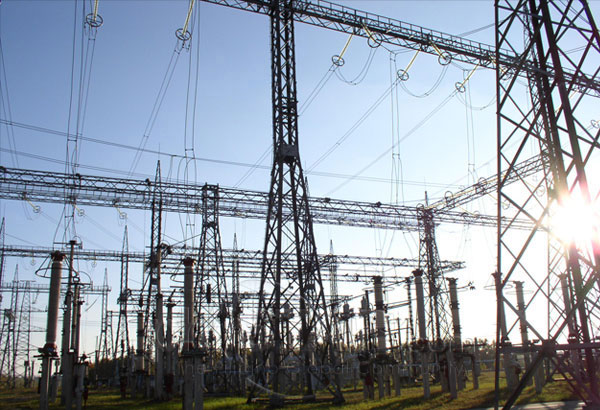5 truths about the Paris climate accord
It was proud and unapologetic when the announcement came that the US is withdrawing from the Paris Agreement on climate change. It was Trump’s implementation of America First – more like American businessmen first. Then the world would be second, even irrelevant. The atmosphere reeks of divide and rule that we Filipinos have seen before. And the ambition, short term over long term – pretty much the same formula for the collapse of some giant American corporations, as we have all seen before.
Unfortunately, life and limb, and all living things are at risk this time. Not only are weather calamities getting fiercer, the timing of seasons has been changing – some winters are coming earlier, some delayed, and rainy seasons seem to come as they please. The Paris Agreement is the biggest human attempt to globally lead efforts of all nations to do something for the planet, for all living, and all that sustain life.
What did the Paris Agreement really say to earn the rebuke of Trump almighty? This Sunday, I wish to share to my readers some truths about the Paris accord, based on actual provisions of the agreement.
1. The US was a signatory to the United Nations Framework Convention on Climate Change as early as 1992 when George W. Bush, also a Republican, was the US president. All US presidents since then, until now, believe that the climate threat is real. The Paris Agreement brings life to this framework. So by reneging on a US commitment, and calling climate change a hoax, Donald Trump is not only rebuking Barack Obama, but also previous presidents from his own party, not to mention allies in the UK, the EU and Canada. Of course, he makes China and Russia look good, too.
2. The heart of the Paris climate accord is to bring down global warming risks by keeping the increase in the global average temperature below two degrees centigrade, and even to a more ambitious 1.5 degrees from pre-industrial levels.
True, making pre-industrial era as reference, before the modern machineries and equipment that produce goods in large volumes, is ambitious, and may even sound out of whack. But all signatory nations know it is a journey, and the agreement itself recognizes that there are different national circumstances.
3. All nations must undertake a Nationally Determined Contribution (NDC) to the global response to climate change to get to that global “2°C” benchmark. The national efforts must be ambitious enough and should be in progression. The NDC, however, must be communicated and any implementation reported under an open book policy.
Probably, the ambitious plan that makes a great impression comes from India. The Minister of State announced that come 2030, only electric cars will be sold and not a single petrol or diesel car will be sold in the country.
4. All nations should strive to “peak” as soon as possible. “Peaking” here refers to that point where a country is not only able to control, but actually reverse its CO2 (carbon dioxide) levels.
Now Trump alleges unfairness, saying that countries like China and India will still be allowed to use coal for some time, while the US will not. That is why he vowed to use coal and protect Americans, particularly the American coal industry.
What was conveniently left out in his narrative is that the US, with its generous and comprehensive household appliances, cars per human, and its industries, is second to China in CO2 emissions as a country. But it is way worse than China in terms of per capita emission because China’s population is three times more than that of the US. Now, the country that is arguably number one in the group that’s mainly responsible for global warming opted out of the climate accord.
5. The agreement not only provides a venue for sharing good practices for mitigation and adaption to climate risks. It also requires developed countries to support developing countries financially in the latter’s national efforts to bring down CO2 emissions. For developed countries, they will have national costs to comply, and the hat will be passed around to help developing countries comply.
Thus, Trump cries foul, saying that the US should stop footing the bill and shall stop global subsidies, generally. This, despite the fact that American interests rely on the world for trade, and rely on citizens of the world for brain and human power as employees and entrepreneurs to keep its own national economy afloat. To be fair though, America and the world exist on a symbiotic relationship.
For me, the sadder story is not the US abdicating its leadership or avoiding commitments. It is about undermining the genius of its people and their technological edge, and underestimating American business’ capability of reinventing and disrupting itself as it has already shown, especially in the recent past.
Nature will not reverse man-made climate troubles. Climate risks bring tragedies of sickness, food shortage, homelessness, and deaths – not far from the tragedies brought about by war. I think the lesson from Donald Trump is that the climate change commitment is not about what is presidential. It is about what is personal. Nothing is more personal than wishing that climate tragedies do not fall upon the generation of our children, or that of our unborn grandchildren, when we are no longer around to help them.
* * *
Alexander B. Cabrera is the chairman and senior partner of Isla Lipana & Co./PwC Philippines. He also chairs the Tax Committee of the Management Association of the Philippines (MAP). Email your comments and questions to [email protected]. This content is for general information purposes only, and should not be used as a substitute for consultation with professional advisors.
- Latest
- Trending






























